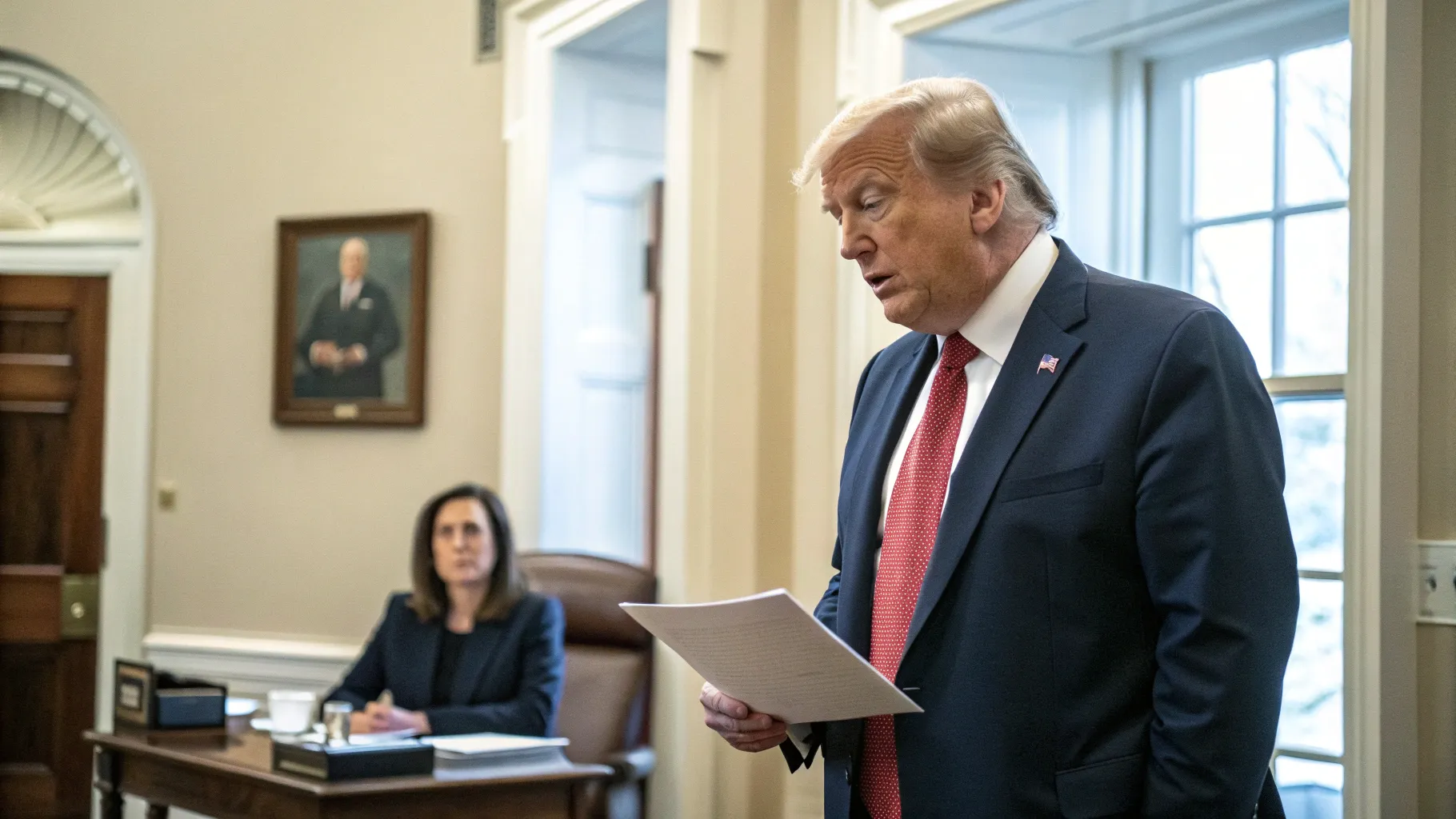President Donald Trump sharply criticized Deputy Attorney General Lisa Monaco in a new written message, objecting to what he described as her access to sensitive matters inside the Justice Department. The comment adds fuel to a long-running fight over how senior officials handle information linked to investigations involving high-profile figures.
“Monaco’s having that kind of access is unacceptable, and cannot be allowed to stand,” Trump wrote.
The remark landed amid heightened political tensions over federal investigations. It echoed Trump’s past claims that senior Justice Department leaders have overreached in cases touching on him and his allies. The Justice Department has not offered a public response to this latest criticism, but its rules give senior leaders oversight responsibilities in matters of high sensitivity.
Who Lisa Monaco Is and What She Oversees
Lisa Monaco serves as the second‑in‑command at the Department of Justice. The Deputy Attorney General supervises the department’s day‑to‑day operations, including the FBI and most litigating divisions. By policy, the Deputy Attorney General helps set investigative priorities and can review sensitive steps in significant cases.
That structure is meant to ensure consistency and accountability. Senior officials are expected to keep a distance from specific charging decisions that rest with career prosecutors. But they may approve significant actions that implicate national security, separation of powers, or widespread public interest.
What “Access” Usually Means at DOJ
Trump’s complaint centers on the concept of “access,” a term that encompasses various types of information. At the DOJ, senior leaders may receive briefings on high-impact cases, read summaries of investigative steps, and review requests for specific warrants or subpoenas in accordance with established rules.
- Senior leaders can be briefed on sensitive matters to assess risk and coordinate with other agencies.
- Case teams typically shield grand jury material and investigative strategy from unnecessary exposure.
- Ethics and recusal rules apply when conflicts are identified.
The Justice Manual sets expectations for these interactions. It seeks to balance operational needs with safeguards that protect investigations and the rights of subjects and witnesses.
The Political Stakes
Trump’s attack on Monaco fits a pattern of questioning the motives and methods of top law enforcement officials. His supporters often view senior oversight as a form of political interference. His critics argue that oversight is part of normal governance and that extraordinary cases require extra scrutiny.
This debate has grown sharper since investigations touching on Trump’s conduct and records management drew national attention. Each step in such cases can trigger new claims of bias or special treatment. That cycle feeds public distrust and places pressure on the department to show that rules are followed.
History of Disputes Over Access
Access disputes are not new. Presidents and political leaders from both parties have faulted the department’s handling of sensitive matters at different times. Past controversies have focused on how and when senior officials were briefed, the timing of public statements, and whether disclosures affected elections or ongoing cases.
In response, the department has often cited written policies that limit public comment on ongoing investigations and restrict contacts with the White House regarding specific cases. Those policies are designed to prevent investigative details from being used as political tools.
What to Watch Next
Trump’s statement is likely to intensify demands for clarity about who sees what information at the DOJ and when. Lawmakers may seek briefings or hearings to test whether standard protocols were followed. Legal experts will focus on two questions: whether any recusal rules apply and whether oversight steps shaped case outcomes.
The department’s challenge is to demonstrate that its decisions are based on established policy, not political pressure. Clear documentation of approvals, recusal reviews, and need‑to‑know limits will be key. For the public, transparency about process—without revealing protected details—may help rebuild trust.
Trump’s rebuke of Monaco signals that battles over Justice Department access and oversight will continue. The core issue is not only who is informed, but how those briefings affect decisions. The next phase will hinge on policy, records, and whether independent checks confirm that lines were respected. Expect more calls for oversight and increased scrutiny of the rules governing senior officials when sensitive cases are at stake.







